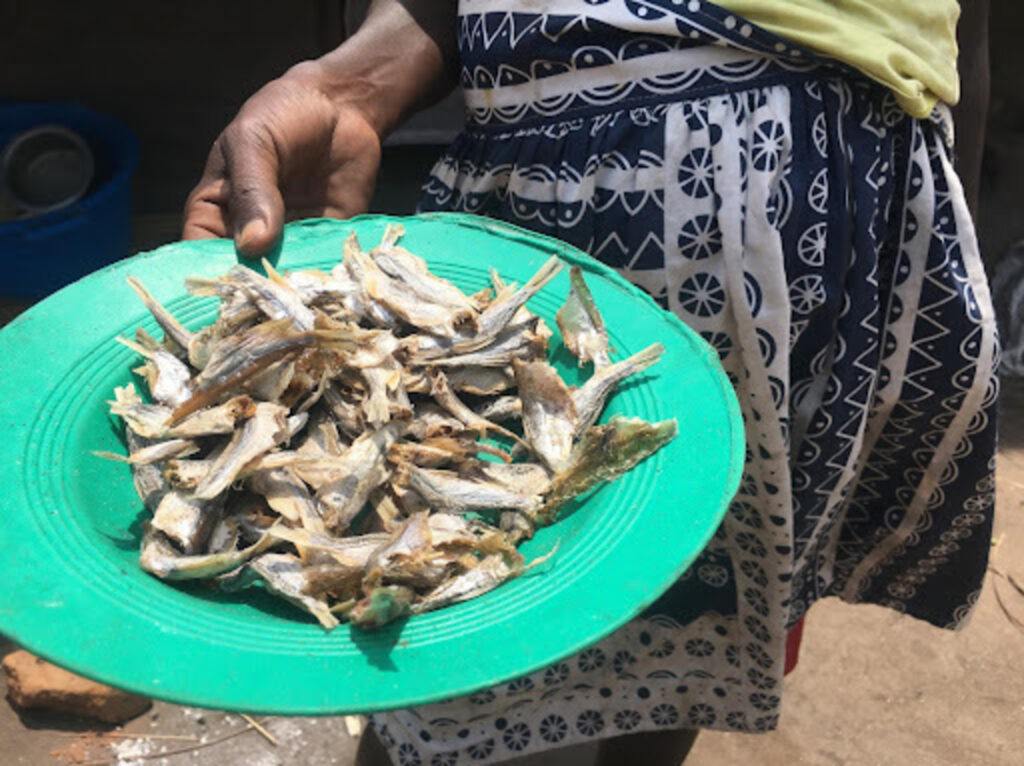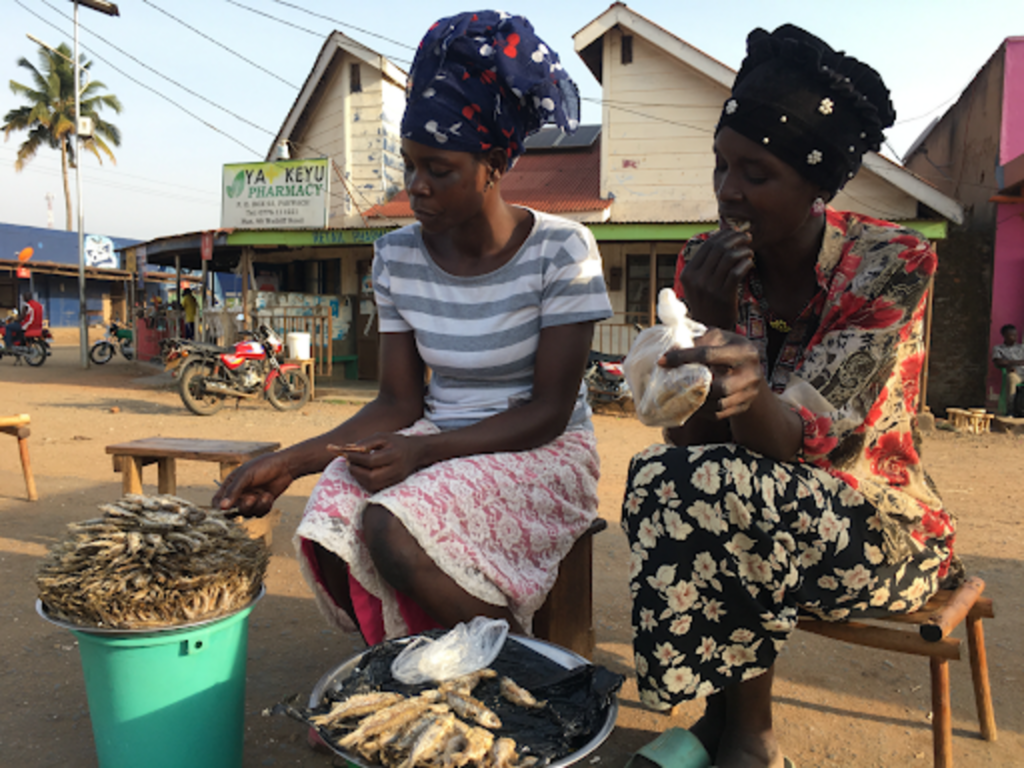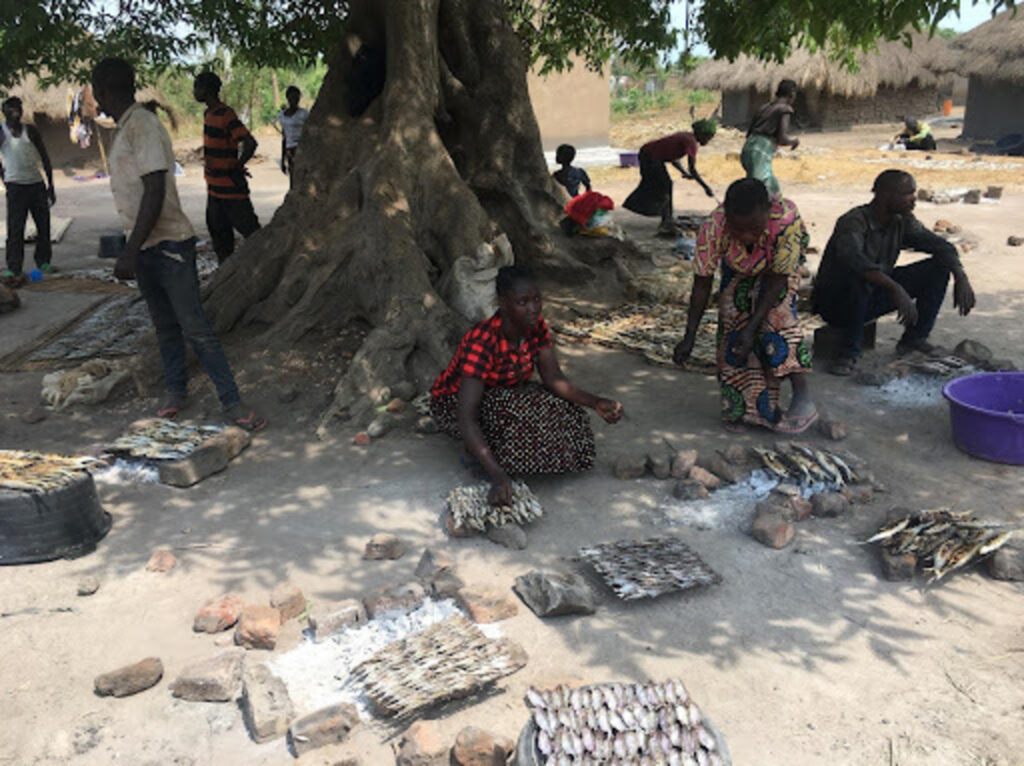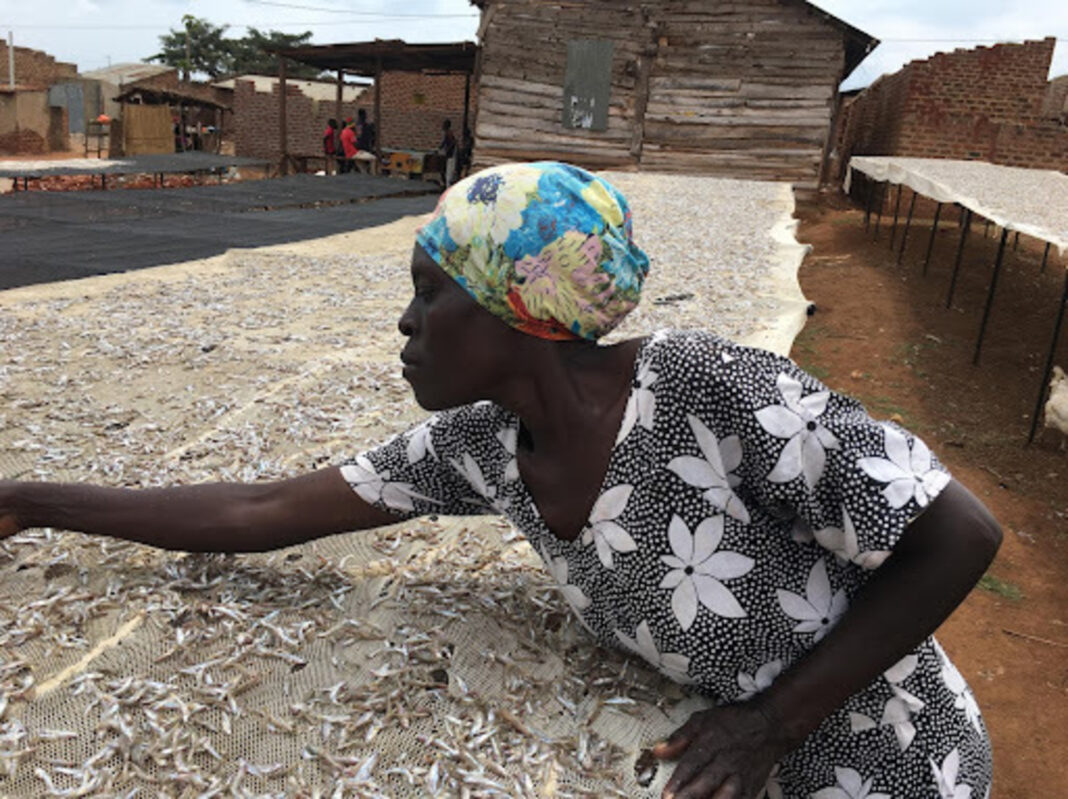With populations of tilapia and perch declining from overfishing, Ugandans have turned to previously neglected, small-sized fish for micronutrients. The result is healthier bodies and a healthier economy.
Musa Odwaka lives just a few meters from the shore of Lake Albert off the River Nile in Uganda, bordering the Democratic republic of Congo (DRC). He’s been a fisherman since he was young, but until recently, he had never tasted the common, finger-size pelagic fish, popularly known as Muziri or silver fish, instead eating larger fish like tilapia and Nile perch, which he believed were tastier.
But lately, Musa has struggled to catch enough of the larger fish. Overfishing and the effects of climate change have impacted their numbers, local scientists conclude. Faced with fewer fish in his haul, Musa, like other fishermen, stopped keeping fish for himself and sold all of his catch. After covering the cost of boat fuel and fishing supplies, he paid his children’s school fees and bought green vegetables and beans to feed his family in Dei Village, in the Pakwach district. Without sufficient nutrition, especially the proteins and minerals from fish, his children became malnourished, and their health deteriorated.
The small pelagic fish found in Ugandan waters have long been regarded as food for the very poor and raw material for animal feed. But, recently, a group of researchers at Uganda’s Makerere University discovered that these fish contain higher micronutrients than many big fish, including the popular and expensive Nile perch and tilapia.
These micronutrients — iron, zinc, calcium, and vitamins — are required for optimal growth and aid in the prevention and treatment of diseases. The 2017 Uganda Demographic and Health Survey estimated that twenty-nine percent of children below five years old had stunted growth, and eleven percent were underweight; fifty-three percent of children between six months and five years were anemic. Zinc deficiency affected seventy percent of children and thirty percent of adult women.

Silver fish are not typically consumed in Uganda, because they are considered dirty, explains Dr. Margaret Masette, one of the Health Survey’s researchers. This is especially true in the fishing communities that catch them (usually as part of bycatch). But in 2019, a collaboration among researchers from Canada, Australia, and Uganda embarked on a four-year project they called NutriFish, with the goal of finding ways to encourage the consumption of these highly nutritious small fish. The project selected and trained what they dubbed “champions” — volunteers (who were given a small stipend) who went into the field to educate those involved in the fishing industry on how to safely and hygienically handle the fish, help manage delivery and packaging, as well as understand the nutritive values in the small fish.
“Small fishes have many advantages,” said Dr. Jackson Efitre, a principal investigator for NutriFish. “They can survive in many conditions, [including] changes in water quality. We did a stock assessment and found that the small fishes are now dominating all the catches in the lakes of Uganda” (because large fish stocks are declining). “We estimate that about forty percent of the catches are lost,” he continued, “which means that per capita fish consumption in Uganda is very low. We are consuming on average ten to twelve kilograms of fish per person per year, but it is recommended that a human being consume up to twenty-six kilos [per year].”

NutriFish has introduced innovations to help get silver fish into people’s homes as part of their diets. For example, raised racks ensure that the fish, once caught, are kept off the ground and inside perforated plastic containers, which allows water to drain. The organization has also promote the use of solar tent dryers, akin to greenhouses and covered with UV-treated polythene, which help reduce losses due to spoilage, especially during the wet season when there is not enough sunshine. “The price of the solar tent-dried fish has gone high,” Dr. Efitre said, with the dried fish now fetching “twice the amount per kilo as compared to the open sun dried fish.” Drying extends the shelf life of the fish so that they can be used in the manufacture of baby foods and be packaged and sold in supermarkets. Consequently, consumption of these small fish has increased by twenty to thirty percent among Ugandan households, including Musa’s: his entire family now eats silver fish, and Musa is now one of Nutrifish’s “champions.”
“The training made me understand that these small fishes have a lot of nutrients and are good for the body,” Musa said. “My children are healthier than before, as they eat muziri every day, which is very affordable.”
Musa is not alone. Mercy Betty Tembe had never thought of eating silver fish, but after she, too, was trained as a champion, not only did she start eating them herself, but also, she now sells them fried at her bar, calling them “delicious.”

Eunice Muwanguzi, a widow with ten children, has a business drying, deep frying, processing, and packaging the small fish. Through Nutrifish, she acquired a bank loan to purchase land and start a business to enable her to take care of her children. Her income from the business has enabled her to build a brick house, replacing her old one made of grass thatch. The project has encouraged women processors to form groups so they can bulk sell their fish products to supermarkets and to Nutreal, a private processing company and partner of the NutriFish project, which is innovating to increase the availability and variety of fish-based products. “We produce five products enriched with [silver fish],” explained Dorothy Nakimbugwe, who heads the Nutreal factory. “We have baby food, sauce, maize meal, snacks, and seasoning.”
Nakimbugwe is optimistic about the ripple effects created by a shift toward these smaller fish (and toward processing them with solar tent dryers). “Fish processing has been associated with carbon emissions, as fishmongers use wood fuel and charcoal to smoke fish, which results in deforestation,” she explained. Beans traditionally make up a significant part of the diet of East Africans, she said, but cooking them also requires a significant amount of fuel and water. On the other hand, she said, “These small fish are easy to cook and … are climate-smart.”


